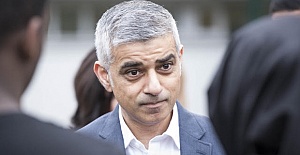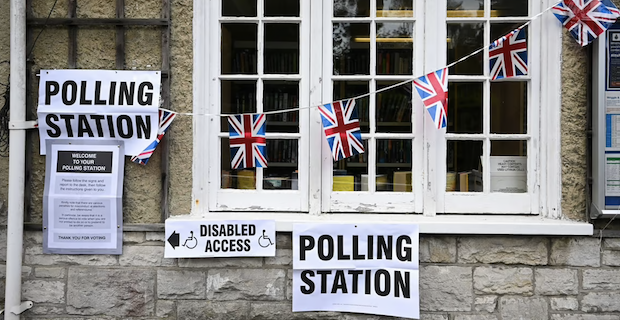Former UK Conservative Chancellor Nigel Lawson once famously described the National Health Service (NHS) as "the closest thing the English have to a religion." But despite its revered status, the NHS is currently facing unprecedented challenges, with things having lately taken a turn for the worse amid the fallout from the Russia-Ukraine war, Brexit and a tightening cost-of-living crisis.
Last year, the system was rocked by the biggest walkout of nurses in NHS history, the result of a clear domino effect after a decade of pay erosion, war-driven deterioration in the economy, and piling workloads triggered partially by Brexit and the coronavirus pandemic.
Pre-pandemic figures in February 2020 already indicated a staggering 4.47 million cases on the waiting list for consultant-led care, according to a recent report by the British Medical Association (BMA).
The number had ballooned to 7.57 million as of April 2024, with 3.16 million patients waiting over 18 weeks and more than 302,600 patients waiting for more than a year. The median waiting time for treatment now stands at 13.9 weeks, nearly double the pre-COVID wait of 7.2 weeks in April 2019. The elective backlog recovery plan set a target to eliminate waits longer than 65 weeks by March 2024, a goal that has not been met. The long-standing objective that 92% of patients should receive treatment within 18 weeks of referral has been unmet since September 2015. And as the UK heads to the polls on Thursday, the NHS has emerged as the primary issue influencing voters.
Biggest issue facing Britain
According to the Ipsos Issues Index, concern for the NHS has surged, with 35% of respondents identifying it as the biggest issue facing Britain, surpassing even the economy. This rise in concern highlights the critical role health care is playing in this election, alongside other major issues like immigration and inflation. "Our pre-election Issues Index shows the NHS has returned as the biggest issue facing Britain. And although economic concern has fallen since April, the economy and inflation both remain big concerns for a significant number of people," Gideon Skinner, head of politics research in public affairs at Ipsos, said in a statement.
The NHS ranks highest among Labour supporters, with 43% citing it as the most important issue facing the country, a little ahead of inflation and the economy (both 34% among this group). Despite consistent annual increases in funding since 2010, the NHS is grappling with a slower growth rate in financial support and declining real-term wages for its staff.
According to an analysis by the Institute for Fiscal Studies (IFS), while NHS spending increased by around 6% annually under the Labour government, it has only risen by about 2% each year under the Conservative administration. This increase is notably lower than the historical average of 3.6% per year dating back to 1949-50, just after the NHS was established. Further exacerbating the situation, the Health Foundation think tank warned last week that the NHS would require substantially more investment than currently promised by either major political party. To address the backlog and enhance services in England, the Health Foundation estimates that an additional £38 billion ($48 billion) annually is necessary.
Decline in nurses' real earnings over past decade
A study conducted by the London School of Economics (LSE) has highlighted the significant decline in nurses' real earnings over the past decade, raising concerns about the sustainability of the nursing workforce in the UK. The research indicates that while real median earnings in the private sector fell by 3.2% between 2011 and 2021, nurses' median earnings saw a more substantial drop of 6% over the same period. The decline in nurses' salaries has coincided with a marked increase in the rate of nurses leaving the profession. According to the study, the annual departure rate for nurses rose from 8.5% in 2010-2011 to 10.9% in 2021-2022. This translates to an alarming 42% increase in the total number of nurses leaving the profession, with the figures rising from 27,000 to over 38,000 during the period. So if the Labour Party comes to power, it needs to prioritize addressing these issues first and ensure the sustainability of the health care system.


 After Nesil Caliskan a by-election will be held in Jubilee ward in Enfield
After Nesil Caliskan a by-election will be held in Jubilee ward in Enfield Publishing the analysis, Labour’s Cllr Ergin Erbil said Everybody in Enfield deserves basic rights
Publishing the analysis, Labour’s Cllr Ergin Erbil said Everybody in Enfield deserves basic rights Gaza-Israel conflict Statement from Cllr Ergin Erbil, Leader of Enfield Council
Gaza-Israel conflict Statement from Cllr Ergin Erbil, Leader of Enfield Council Cllr Ergin Erbil was elected as the new Leader of Enfield Council
Cllr Ergin Erbil was elected as the new Leader of Enfield Council Sustainable Development and ESG, Will This Become the Course for Turkic World
Sustainable Development and ESG, Will This Become the Course for Turkic World Thousands evacuate Santorini as more earthquakes strike island
Thousands evacuate Santorini as more earthquakes strike island Rauf Raif Denktas and Dr. Fazıl Kucuk II. International Cyprus Studies
Rauf Raif Denktas and Dr. Fazıl Kucuk II. International Cyprus Studies We continue our promotional activities in Europe, primarily in the UK said Ahmet Aras
We continue our promotional activities in Europe, primarily in the UK said Ahmet Aras Inzaghi stated that they felt the absence of our national player Hakan Çalhanoğlu
Inzaghi stated that they felt the absence of our national player Hakan Çalhanoğlu Besiktas are said to be in advanced talks to secure the Norwegian coach
Besiktas are said to be in advanced talks to secure the Norwegian coach Footballers are celebrating after Enfield Council officially opened a pitch
Footballers are celebrating after Enfield Council officially opened a pitch  Pep Guardiola's Manchester City beaten by Juventus
Pep Guardiola's Manchester City beaten by Juventus London mayor says 'Brexit was a mistake,' vows to rebuild ties with Europe
London mayor says 'Brexit was a mistake,' vows to rebuild ties with Europe Trade insights, and global growth at the heart of IFE’s Exporters Hub programme
Trade insights, and global growth at the heart of IFE’s Exporters Hub programme  TfL celebrates National Apprenticeship Week
TfL celebrates National Apprenticeship Week Enfield Council will champion a new Lane Rental Scheme
Enfield Council will champion a new Lane Rental Scheme




















